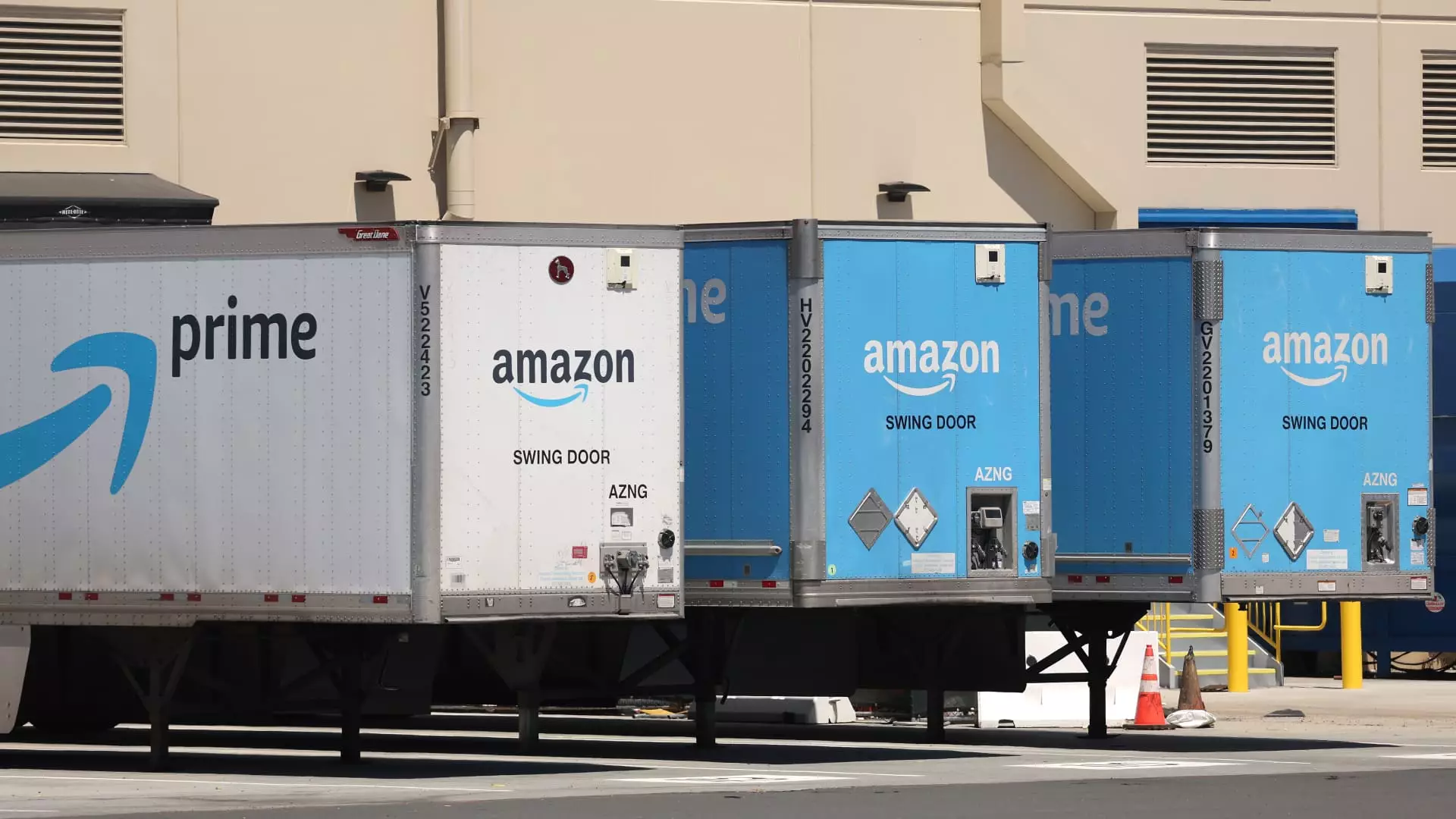In an astonishing revelation, the U.S. Department of Justice (DOJ) has unveiled a sophisticated scheme involving members of an Armenian organized crime ring that purportedly pilfered over $83 million worth of goods from Amazon. This operation, which has reportedly been in play since at least 2021, illustrates a troubling intersection of technological feints and criminal ingenuity. The crime syndicate posed as legitimate truck drivers, intricately orchestrating their operations across California by taking advantage of Amazon’s logistical systems to siphon off high-demand products like smart TVs and kitchen appliances.
Cargo theft, as described by the DOJ, has spiraled into a widespread issue affecting various retailers—not just Amazon. Experts estimate losses related to this nefarious practice to be alarmingly close to $1 billion annually. This statistic not only underscores the gravity of the situation but also highlights a significant operational choke point for online retailers. Companies like Amazon are left with the unenviable task of not only delivering goods swiftly but securing their supply chains against increasingly audacious criminal enterprises.
The Mechanisms Behind the Scheme
The alleged crime operation utilized four transport carriers—AK Transportation, NBA Holdings, Belman Transport, and Markos Transportation—to manipulate a system known as Amazon Relay, designed to connect university truck drivers with delivery loads. Herein lies the genius of their scheme: instead of following designated routes to drop off goods at Amazon warehouses, these self-proclaimed carriers diverted their deliveries, absconding with sizable portions of the freight. The DOJ has described instances where these illicit carriers deliberately delayed their deliveries, elongating the timeline and allowing them the opportunity to dispose of the stolen goods.
This organized network operated unhindered for too long due to apparent loopholes in Amazon’s oversight mechanisms. The sophistication of the operation raises questions about the resilience of Amazon’s internal tracking systems and their ability to adapt to evolving threats. As a retailer that handles thousands of shipments daily, Amazon must address its vulnerabilities vigorously. However, given the complexity of the e-commerce ecosystem, finding a foolproof solution is a daunting challenge.
Investigative Cooperation and Legal Ramifications
The investigation gained momentum thanks to a collaborative effort between Amazon’s security teams and the DOJ. Their combined analysis of the alleged criminals’ activities not only led to the seizure of critical evidence—such as iPhones filled with images of stolen merchandise—but has also unraveled a bevy of associated crimes, including attempted murder, kidnapping, and illegal possession of firearms. The tangled nature of these allegations signifies that the crime syndicate is not merely a group of opportunistic thieves but rather part of a broader criminal enterprise with deep roots in organized crime.
The legal ramifications extend well beyond merely recovering stolen goods. Prosecutors are preparing cases against these individuals, emphasizing that their illicit operations are symptomatic of larger societal problems. It’s a stark reminder of how organized crime can infiltrate legitimate commercial sectors, ultimately putting consumers at risk and threatening fair market competition.
The Implications for E-Commerce
This case serves as a critical wake-up call for both policymakers and e-commerce giants. As online shopping becomes increasingly prevalent, the infrastructure supporting it must evolve in tandem. Amazon and its logistical partners are now confronted with the urgent necessity to rethink security protocols and enhance surveillance capabilities across their transportation networks. Failure to do so could embolden other criminal enterprises to replicate similar tactics, leading to even greater financial losses for companies and a detrimental trickle-down effect on consumers.
In addition to the heightened risk of financial loss, the bevy of negative perceptions surrounding cargo theft could erode trust in e-commerce platforms. As online shopping becomes integral to daily life, retail stakeholders must recognize that robust security measures are no longer optional; they are imperative.
As our society moves deeper into the digital age, we must remain vigilant against the multifaceted threats that come with it. The complexities illuminated by this case remind us that innovation must be matched with adequate defenses, lest we inadvertently open the door wider for criminal activities masquerading as opportunities for success.

